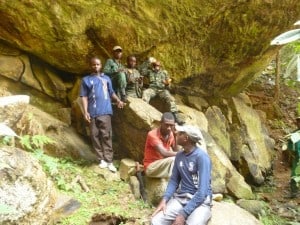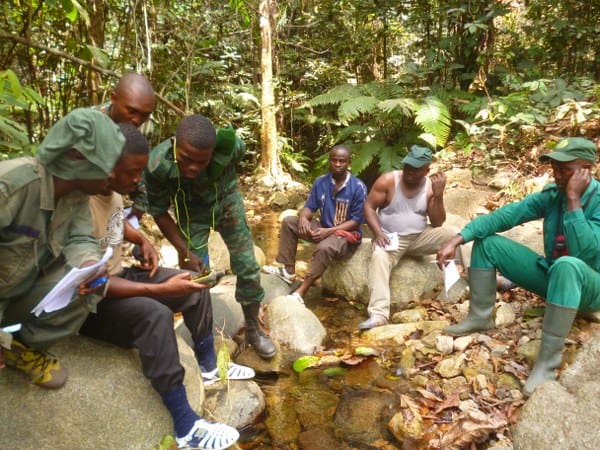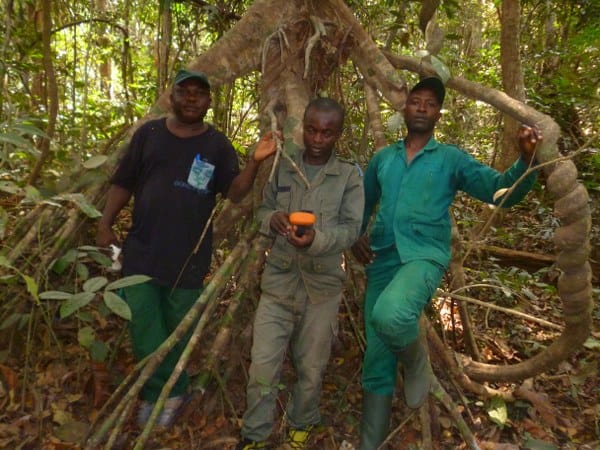
Participants also improved their capacity on the mode of operation of camera traps, installation techniques and retrieving of data from the camera traps. During the training, participants were given the privilege to practically use these equipment to collect data.
Speaking during the training, the Director of Biodiversity and Protected Area Management at the Environment and Rural Development Foundation, (ERuDeF), Enokenwa Allen Tabi, said the carrying out of routine surveillance in Tofala Hill Wildlife Sanctuary is very important. He indicated that the training will equip the Eco-Guards with the necessary knowledge and tools to crack down on deviant behaviours and excesses in and around the sanctuary.

The Eco-Guards, promised to use the knowledge gathered to patrol and survey the forest with all technicality. “I shall use the knowledge got from this training to effectively keep Tofala safe from poachers and encroachers,” Elebe Christian, an eco-guard said
They expressed sincere gratitude to the management of ERuDeF, for always standing by the government for the management of the sanctuary.
The Eco-Guards acknowledged that the training was necessary given that most of them are new recruits.
“Most of us are new to the sanctuary. With this training, we have learnt a lot that will help in our surveillance and patrol of the sanctuary. The exercise was more of orientation to me,” Placid, a ranger said.
For his part, the conservator of the Tofala Hill Wildlife Sanctuary, Mr Amin Thomas, underscored the importance of such a training.
“I am very grateful for this training because it will enable those newly recruited eco-guards and the old once to improve their skills on the use of these patrol and forest surveillance equipment. These will go a long way to help us collect quality data that will be usedto effectively manage the Tofala Hill Wildlife Sanctuary,” Mr Amin said

Situated in the Lebialem highlands, Southwest Cameroon, the Tofala Hill Wildlife Sanctuary covers a total surface area of 8087 hectares and harbours two great apes species, the Cross River gorilla (Gorilla gorilladiehli)and the Nigeria-Cameroon chimpanzee (Pan troglodytes elloiti). It also inhabits drills ( Mandrillusleucophaeus), and other threatened wildlife species. It is therefore fundamental to ensure the protection of these species by supporting the management of the Sanctuary.
By Allen Tabi



